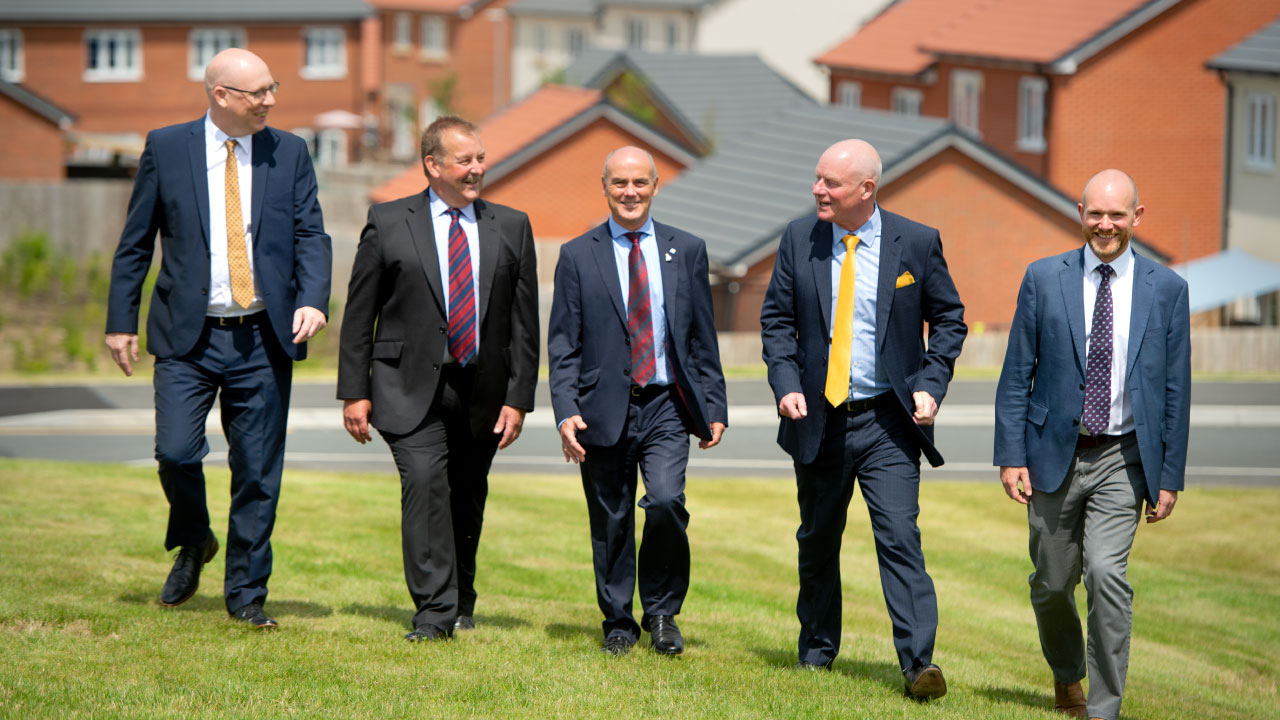


Untangling a massive and complex heritage site
Following the 2010 Strategic Defence & Security Review, the ABP aimed to return 20,000 UK troops from Germany by 2020. The Salisbury Plain Service Families Accommodation (SFA) represented a cornerstone of this ambitious plan, delivering homes to Larkhill, Ludgershall and Bulford alongside £1.2bn in infrastructure for working and living accommodation, workshops, offices, and welfare facilities.
Such massive scope meant a complex undertaking in masterplanning, heritage, environment and logistics that would span eight years of masterplanning, design, procurement and delivery. A major masterplanning exercise in itself had to be carried out to define the best locations for housing.
But tight planning application and funding deadlines accompanied a delivery environment that itself bore challenges almost as steep as the very slope on which the Larkhill development sat.
For one, the project sat next to Stonehenge, a world heritage site of great archaeological importance, which included World War I-era battlefield trenches that made waves in the news following their discovery by Tetra Tech archaeologists. Moreover, the project needed to address poor surrounding transport links and provide brownfield site and environmental impact mitigation.
Yet, despite the risks of missing objectives and dates, the project consistently delivered industry-leading outputs of 12–16 houses a week. How did we get there? This was the story of different organisations with unique drivers adopting joint ownership of problems for a better project outcome
Joint Solutions
Together with DIO planners and higher authority stakeholders – particularly Wiltshire Council – we developed a plan that received accolades from the Royal Town Planning Institute. This drew on our deep knowledge of strategic housing plans, town planning, ecology, archaeological and environmental risk factors, transport plans, local area development plans, and the Army’s drivers.
To overcome this logistical Rubik’s cube of meeting the fixed delivery date for the houses, DIO and Tetra Tech implemented two-stage tendering for procurement and delivery while applying the principles of ISO 44001 Collaborative Working.
Collaborative working itself became the singular focus of a course-changing workshop in November 2017, convening all senior staff from the project team. Holding this workshop unlocked the door to openly sharing problems. It set the conditions for success whilst discussing corporate drivers, behaviours and perceptions. It pushed us towards a mutual understanding of our responsibilities in achieving project success.
It also set the behaviours and processes to ensure that the Joint Project Management Office at Ludgershall, where face-to-face discussions between senior staff resolved issues far quicker and encouraged joint ownership of issues, ultimately reducing risk and improving decision-making.
Frequent positive communication persisted throughout the project as we proactively engaged with stakeholders in the Army, DIO, County and Parish Councils, Lovell Partnerships, JCT Constructing Excellence, and over ten national bodies, agencies, and interest groups – from Environment Agency to Historic England.


Efficient Delivery Realised
Through our effective stakeholder engagement and high quality technical reports to support the Client’s objectives, stakeholders initially opposed to development became plaudits of how we carried out the work and what had been delivered. Due to the collaborative approach of the whole Delivery Team; Tetra Tech, DIO and Lovell, we were able to deliver to meet all the required in-service dates with sufficient houses to enable the critical move of troops back from Germany over the summer of 2019. The joint ownership and desire for project success from all parties ensured smooth continuity of delivery well above industry norms and quick and pragmatic resolution of issues limiting eventual cost to the Ministry of Defence saving over £3.5m against the original risk liability. The collaborative ways of working were formalised into the Project Joint Relationship Management Plan, which now forms part of the ISO44001 certified relationship between Tetra Tech and the DIO.
The project handed over the last houses in Larkhill to schedule in August 2020 despite the impact of Covid 19 and the service family occupants are delighted with the quality of the houses and estates.
Connect with us. Reach out to our experts.